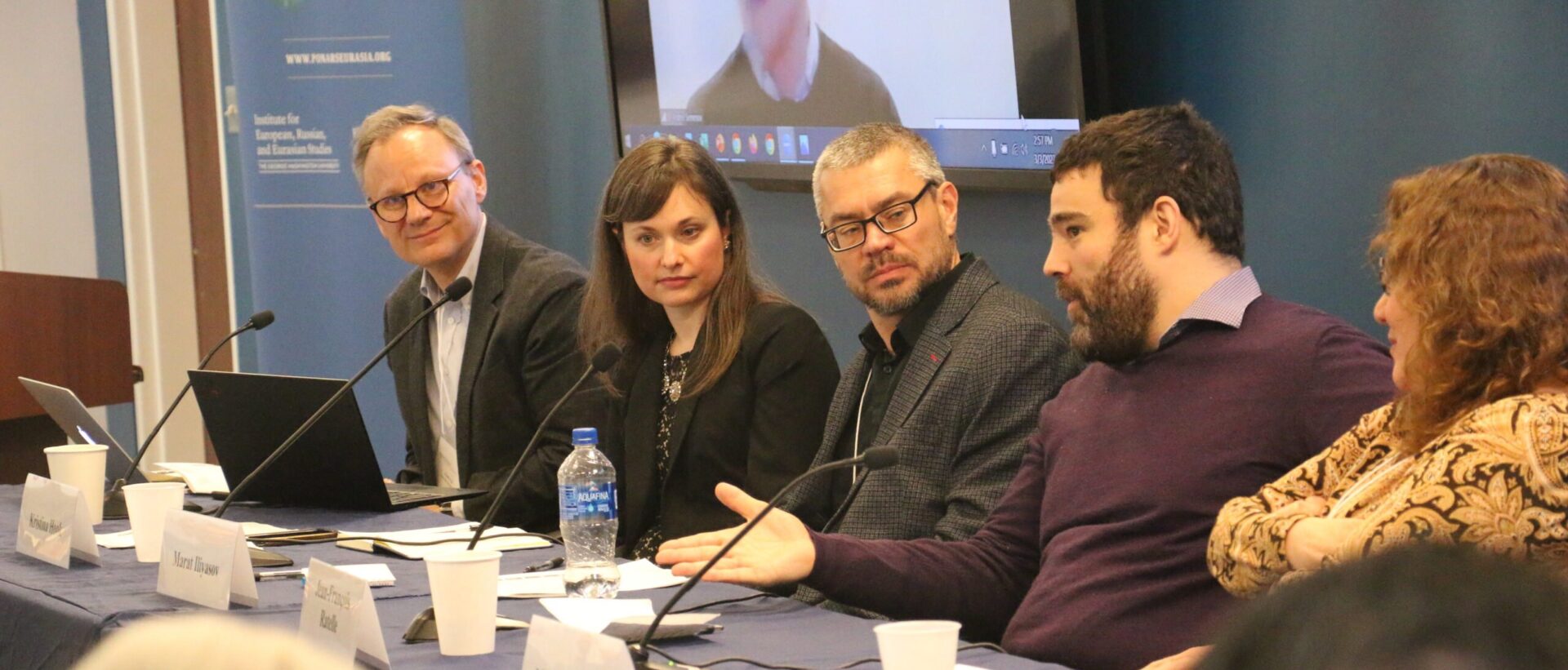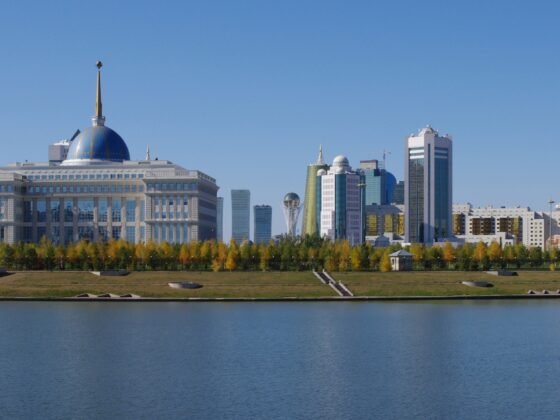The PONARS Annual Policy Conference convenes international experts from North America, Russia, Ukraine, and Eurasia for a series of panel discussions. This year’s event offers insight from leading scholars and experts into comparative politics and international affairs in the region, both related to and beyond Russia’s ongoing war in Ukraine. The live event will be exclusively in person (as opposed to hybrid).
Monday, October 30, 2023 | Elliott School of International Affairs (1957 E St NW)
AGENDA
9:00 am: Opening Remarks: David Szakonyi, The George Washington University
9:00-10:30 am: Panel 1: The War: Escalation, Mediation, Responsibilities
Chair: Henry Hale, George Washington University
Polina Sinovets, Odesa I. I. Mechnikov National University
“All Blushes of Autumn: The Evolving ‘Red Lines’ of Russia in the War on Ukraine”
Kristina Hook, Kennesaw State University
“Evaluating Russian Breaches and Responsibilities under the UN Genocide Convention: Genocidal Commission and Incitement”
Tetyana Malyarenko, National University of Odesa Law Academy
“Between Scylla and Charybdis: Problems and Perspectives of International Mediation in the Protracted Russian-Ukrainian War”
Uliana Movchan, V.N. Karazin Kharkiv National University
“After War Ends: Perspectives of Inclusive Democracy in Ukraine”
Discussant: Melinda Haring, Atlantic Council
10:30-10:45 am: Coffee Break
10:45 am-12:30 pm: Panel 2: The War’s Impact on Russian Politics and Economy
Chair: Marlene Laruelle, The George Washington University
Peter Rutland, Wesleyan University
“The Russian Economy in the Face of Sanctions”
Volodymyr Ishchenko, Freie Universität Berlin, Ilya Matveev, University of California Berkeley, and Oleg Zhuravlev, Scuola Normale Superiore, Pisa
“Russian ‘Military Keynesianism?’ Who Benefits from the War in Ukraine and Whether it Matters”
Marat Iliyasov, Miami University of Ohio, Vilnius University (co-authored with Jean-Francois Ratelle, University of Ottawa)
“Ramzan Kadyrov as a Double-Edged Sword: A Comparative Discursive Analysis Between Chechen and Russian Discourse”
Margarita Zavadskaya, Finnish Institute of International Affairs
“Will There Be More Mutinies? Implications of Undermining Violence Monopoly in Russia”
Discussant: William Pomeranz, Kennan Institute
12:30-1:30 pm: Lunch
1:30-3:00 pm: Panel 3: The War’s Repercussions on the Broader Region
Chair: Irina Busygina, Harvard University
Hannah Chapman, University of Oklahoma
“Central Asian Attitudes Toward Russia Following the Invasion of Ukraine”
Alexander Iskandaryan, Caucasus Institute, Armenia
“The South Caucasus between Putin and Erdoğan”
Ryhor Nizhnikau, Finnish Institute of International Affairs (co-authored with Arkady Moshes, Finnish Institute of International Affairs)
“The Effects of Russia’s Invasion of Ukraine on Moldova’s Politics and Society”
Mikhail Troitskiy, Univeristy of Wisconsin – Madison
“Negotiating Security with Autocracies: Implications for the Russo-Ukrainian War.”
Discussant: William Hill, Kennan Institute
3:00-3:15 pm: Coffee Break
3:15-5:00 pm: Panel 4: Is Russia’s Internal Stability at Stake?
Chair: Polina Sinovets, Odesa I. I. Mechnikov National University
Edward Holland, University of Arkansas
“Revisiting Arguments About the Breakup of the Russian Federation”
Natalia Forrat, University of Michigan
“Turning the Soviet Ethos into a Democracy Cause: Lessons from the 2020 Belarus Mobilization”
Katie Stewart, Knox College
“Karelia’s Response to Finland’s Accession to NATO”
Irina Busygina, Harvard University
“Center-Regional Relations in Russia During the War: Are There Signs of Model Erosion?”
Richard Arnold, Muskingum University
“Cossacks as a Case Study in Russia’s Paramilitarization”
Discussant: Miriam Lanskoy, National Endowment for Democracy











